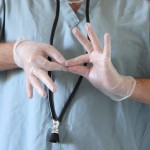I recently came across an article from Beth Adams in Rochester, NY. In this article, she addresses the issue of health conditions affecting the Deaf and Hearing populations. It seems relevant to share the research findings as they highlight the gaps in “access to information” – – especially for deaf individuals growing up in hearing families – – where sign language is not the primary means of communication.
According to recent studies, Deaf individuals (compared to their hearing peers) are up to seven times more likely to have heart disease, high blood pressure, and strokes.
That’s according to research from RIT’s National Technical Institute for the Deaf and the University of Michigan.
Professor Peter Hauser, director of NTID’s Center on Cognition and Language, recently reported to a UN committee in Geneva, Switzerland about the problem.
Hauser said, through an interpreter, these health disparities are the result of knowledge gaps in the Deaf community.
“Hearing people, normally the more educated they are, the more they also know about health issues. But that’s not true for the Deaf community. There are Deaf individuals with Master’s degrees and PhDs who don’t know as much about health information as their hearing peers.”
Why? Deaf individuals may not be aware of their family’s medical history. Often those conversations happen in spoken English. The same barrier keeps Deaf and hard of hearing people from picking up health information on the radio or TV.
In Rochester, with its high per capita deaf population, Hauser says a lot of doctors are fluent in American Sign Language or understand how to use interpreters, but that’s not necessarily the case in the rest of the country or in other parts of the world. Even in Rochester, he says there is room for improvement.
“I guess part of the reason is high turnover,” Hauser said. “People move to Rochester and then move away. Or they move here and they’re not familiar with the Deaf community. We have to consistently educate people about Deaf individuals and we have to continue educating parents who just found out that their child is deaf.”
Hauser stresses the need for more qualified sign language interpreters with training in health care and more opportunities for Deaf individuals to get training in health care professions. He says it’s also important to train hearing health care providers on how to work with Deaf co-workers, patients, and their family members.
How many Deaf individuals postpone visits to the Doctor because communication is so difficult? How many live in small towns where sign language interpreters are not available?
Thankfully, these questions are being asked and potential solutions are at least being discussed. The train has left the station.













July 20, 2018
asl, deaf, deaf community, medical, sign language, sign language interpreters